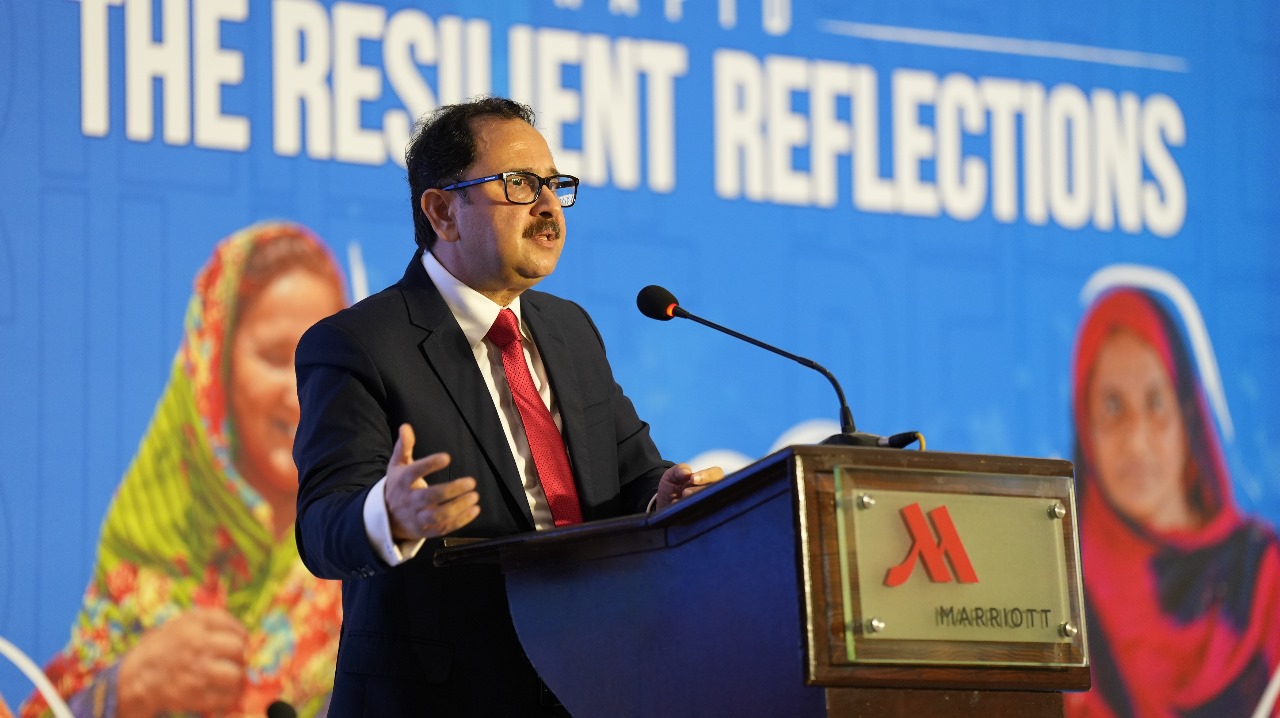Pakistan, recognized as one of the world’s most disaster-prone nations, grapples with a host of climate-induced challenges, including recurring floods, droughts, and other extreme weather events. The increasing frequency and severity of natural disasters, exemplified by the catastrophic floods of 2022, have placed vulnerable communities at significant risk, jeopardizing their lives, livelihoods, and access to essential resources and services.
In response to these challenges, Islamic Relief, in partnership with the National Disaster Risk Management Fund (NDRMF), recently organized an event titled “RAPID: The Resilient Reflections.” This initiative stems from the Resilient and Adaptive Population in Disaster (RAPID) project, which was launched with financial support from the Asian Development Bank (ADB) to tackle the pressing climate challenges faced by districts in Balochistan and Khyber Pakhtunkhwa. These regions have been severely impacted by recurrent natural disasters, including floods and seismic activity.
The RAPID-I project was effectively implemented in Chagai and Quetta, Balochistan, while RAPID-II has just concluded in D.I. Khan, Khyber Pakhtunkhwa, focusing on flood protection against hill torrents originating from the Koh-e-Sulaiman mountain range. These projects have played a crucial role in safeguarding communities from flash floods, preserving water tables, preventing land degradation, and mitigating the effects of seismic activities. Significant interventions, including the construction of check dams, reservoirs, and the retrofitting of schools and hospitals, have enhanced the safety and well-being of residents in these vulnerable areas.
Islamic Relief Pakistan brought together government officials, donors, community members, and other stakeholders to reflect on the achievements of the RAPID project and discuss future resilience efforts for vulnerable communities.
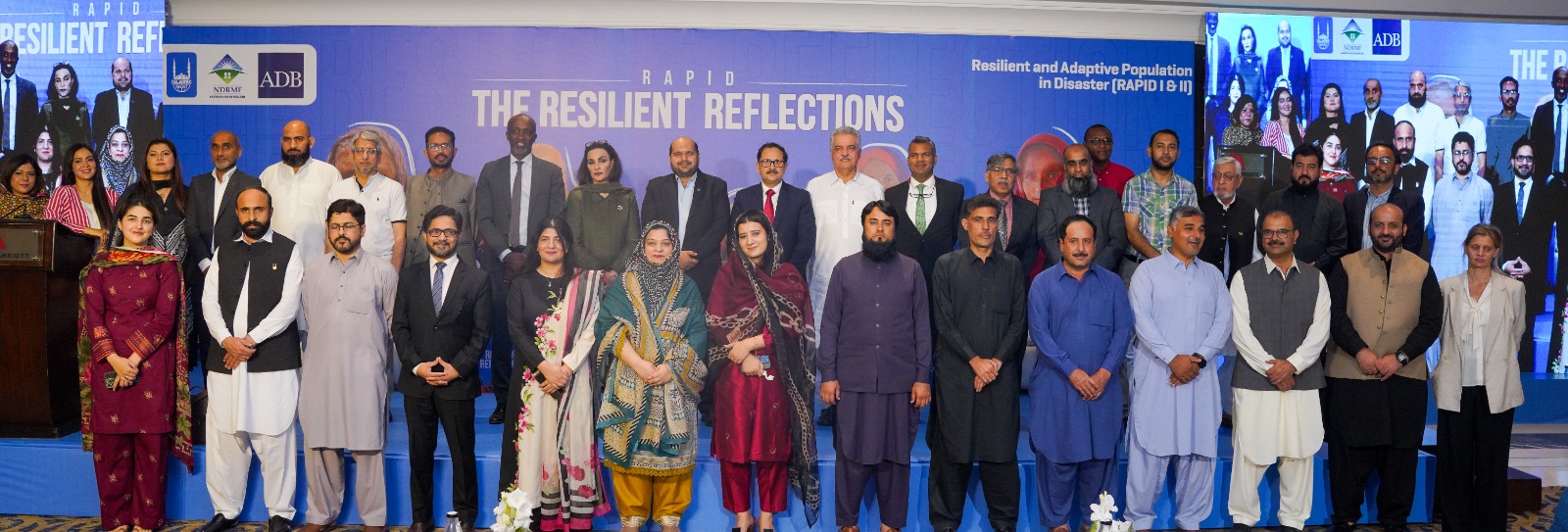
Romina Khurshid Alam and Senator Sherry Rehman attended as the Chief Guests at the event. Other notable attendees included Asif Sherazi, Country Director of Islamic Relief Pakistan; Bilal Anwar, CEO of NDRMF; Mohamed Yahya, UN Resident & Humanitarian Coordinator for Pakistan; Nathan A. Rive, Climate Change Specialist at the Asian Development Bank; Dr. Aneel Salman, OGDCL-IPRI Chair in Economic Security at the Islamabad Policy Research Institute; Kiran Afzal, Senior Private Sector Development Specialist at the World Bank Group; Muhammad Sohail, National Programme Coordinator at UNDP Pakistan; and Shabel Firuz, Head of Region Asia at Islamic Relief Worldwide.
The event witnessed a significant turnout of representatives from national and international organizations, media, academia, think tanks, and development practitioners, emphasizing the collective commitment to building resilience in Pakistan’s most vulnerable regions.
Romina Khurshid Alam, Coordinator to Prime Minister on Climate Change emphasized the interconnectedness of our global community. “It’s encouraging to see Pakistan vocal about regional issues, especially as part of the V20 countries,” she stated. She highlighted the need for tailored regional solutions rather than one-size-fits-all approaches, urging us to learn from best practices.
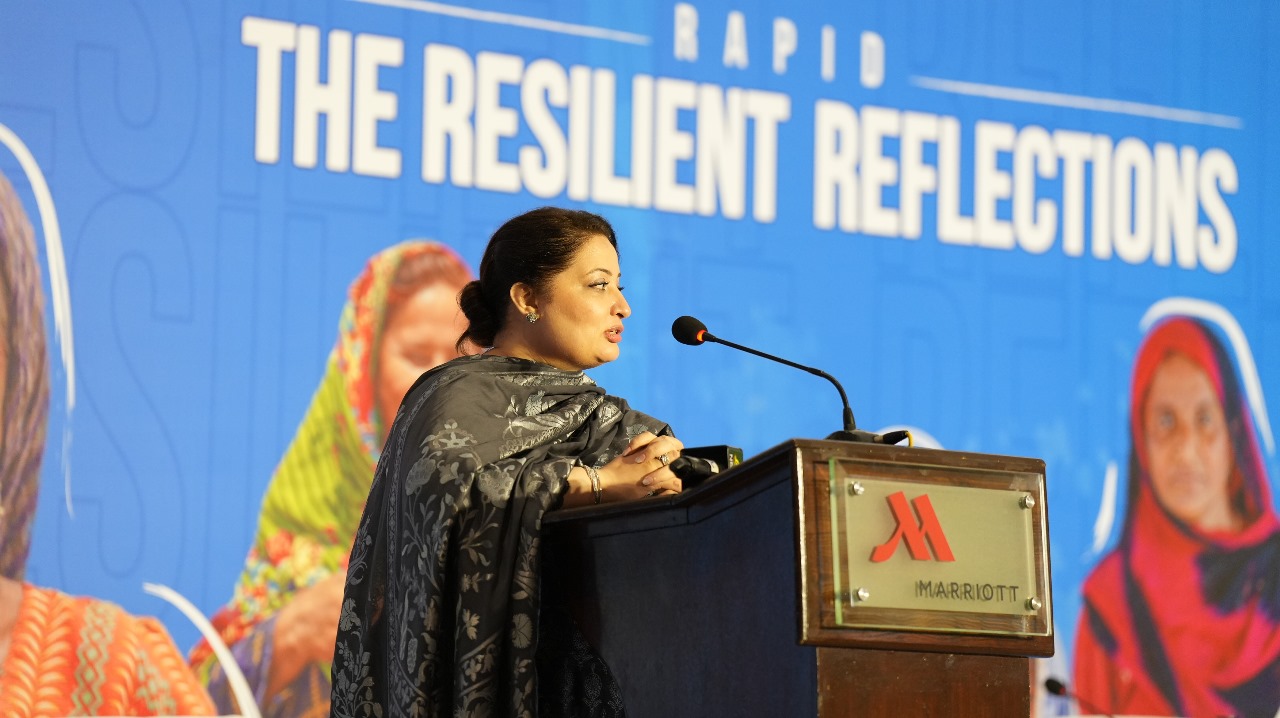
Khurshid Alam stressed the importance of strong adaptation plans, noting the significant losses associated with disasters, including economic impacts and the mental trauma of losing homes and loved ones. “We must address these man-made disasters not just for ourselves but for all of us,” she concluded, advocating for proactive measures rather than waiting for every COP to address these urgent issues.
Chief Guest, Senator Sherry Rehman, Chairperson of the Senate Standing Committee on Climate Change graced the event with her presence. She talked about the severe stresses faced by large populations due to resource scarcity. “We must integrate disaster risk reduction (DRR) into all plans,” she urged, stressing the unimaginable fragility of vulnerable communities. She pointed out that DRR and adaptation remain low priorities globally, resulting in inadequate support.
“We’re still facing the same challenges despite many international conferences,” she remarked, noting that the 2022 floods were driven by global emissions, not fate. “The fossil fuel industry has the power to change this, yet they don’t.”
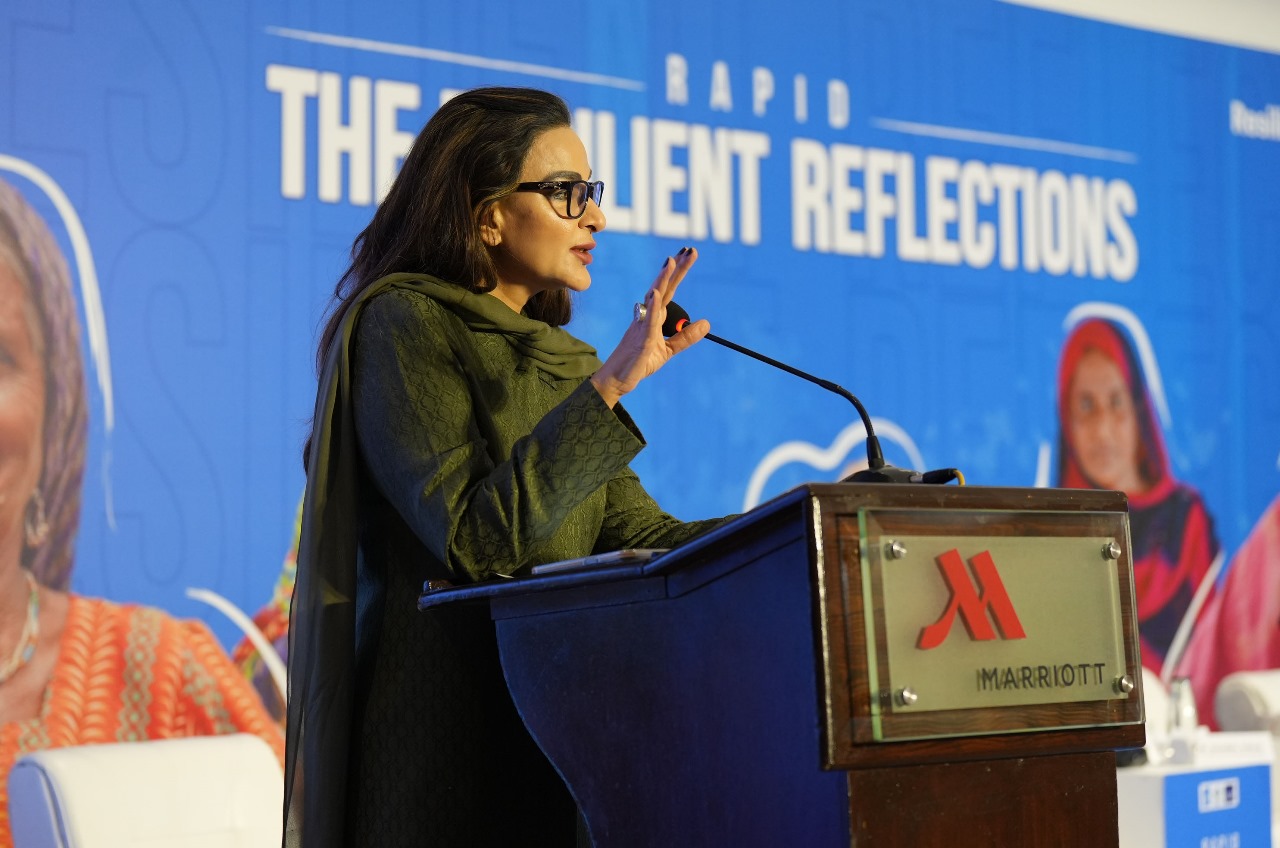
In his opening remarks, Mr. Asif Sherazi, Country Director of Islamic Relief Pakistan, warmly welcomed the guests and stressed the urgent need for collective action on climate change, particularly noting its disproportionate impact on Pakistan. Reflecting on the devastating 2022 floods, he remarked that they served as a crucial wake-up call for the country, pushing Islamic Relief to lead efforts in building community resilience.
“The 2022 floods gave us all a chance to reflect. Since then, Islamic Relief and its partners have been implementing transformative actions to save lives and empower communities to secure their present and future,” Sherazi shared.
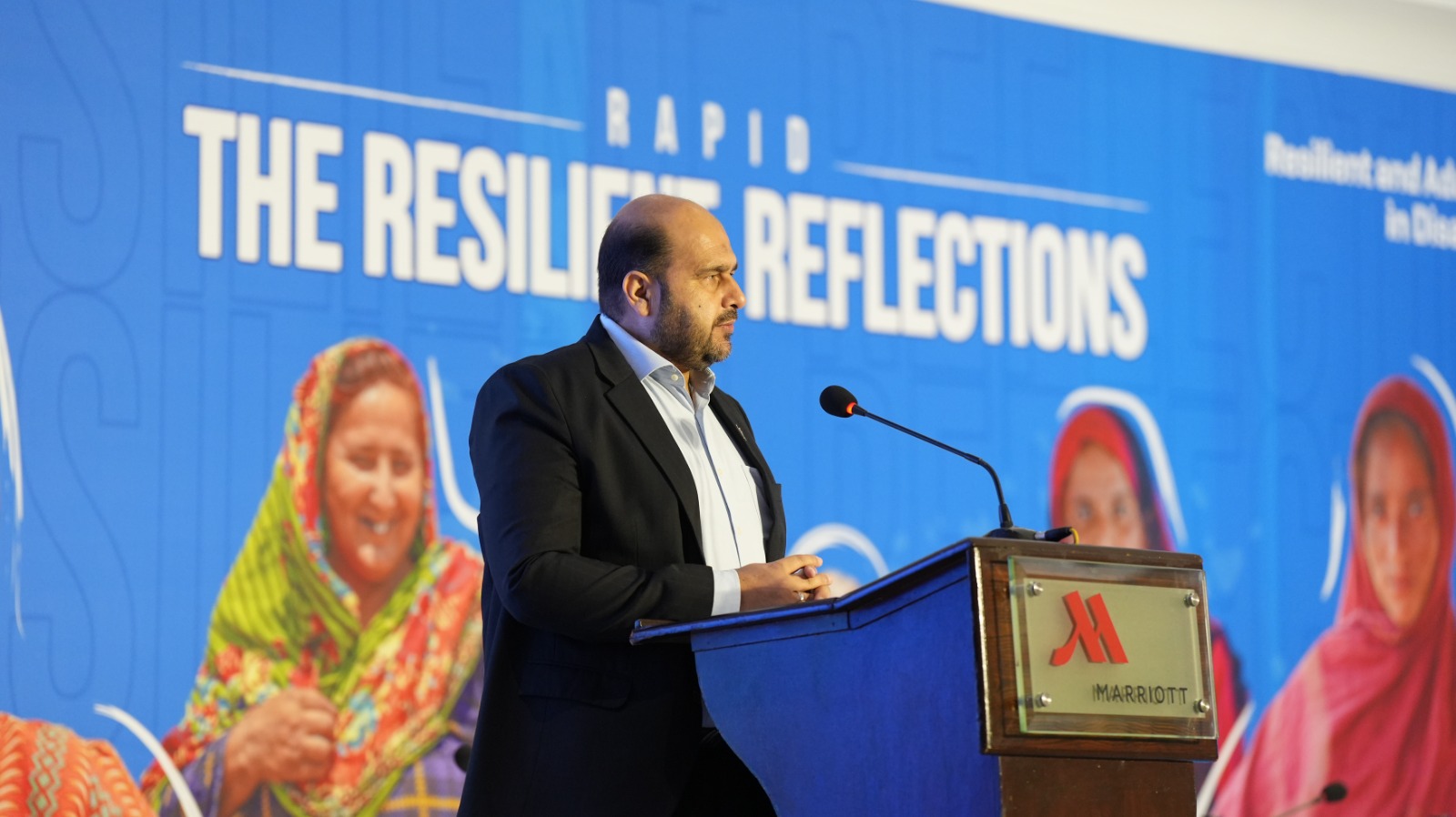
UN Resident & Humanitarian Coordinator for Pakistan, Mohamed Yahya, expressed concerns over the threats to livelihoods from climate change, emphasizing that “Pakistan is facing challenges from issues we had little to do with.” He talked about the importance of partnerships with the private sector for their innovation and expertise. Yahya called for stronger international support, stating that “Pakistan cannot be left alone to tackle climate vulnerabilities that are not of its making.”
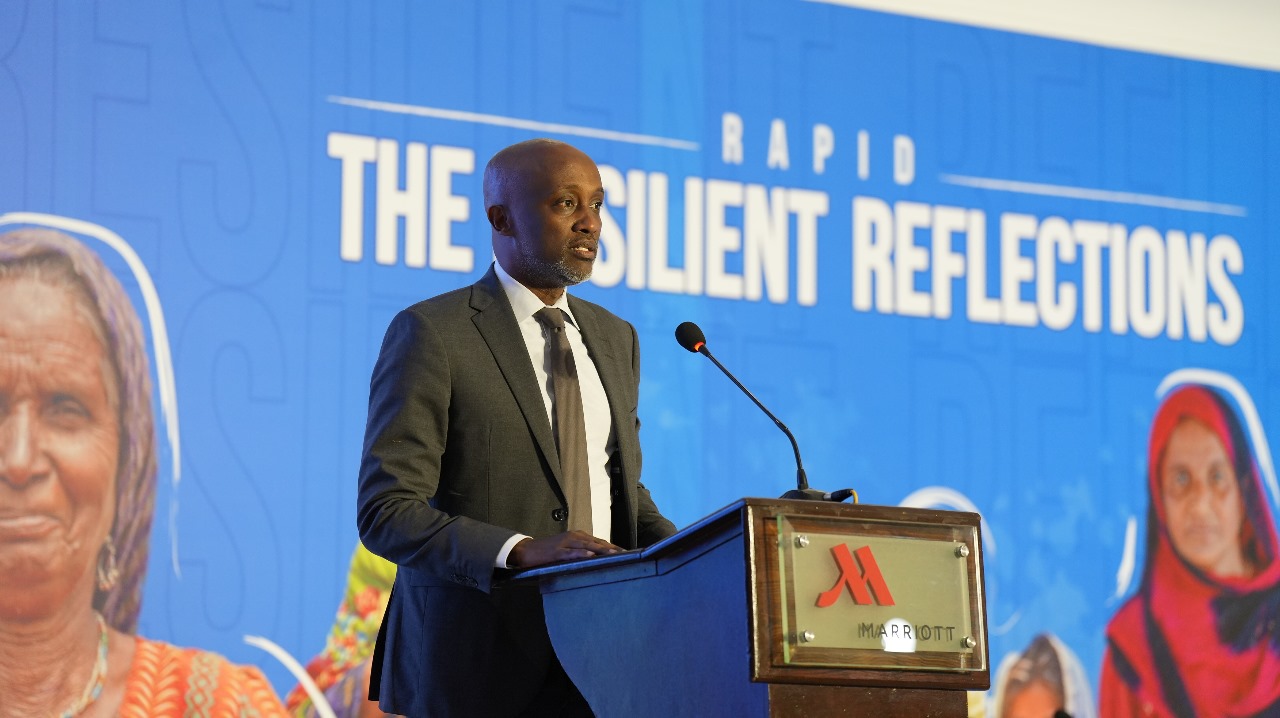
In one-on-one discuusion with Hiba Usaf Siddiqui, Senior Manager Media and Communications, Raza Narejo, Deputy Country Director Islamic Relief Pakistan emphasized the importance of community knowledge in guiding interventions, saying, “We engage by learning from communities to meet their needs.” He also highlighted the role of partnerships and stressed the need for agility, stating, “We must adapt strategies to address emerging climate challenges.”
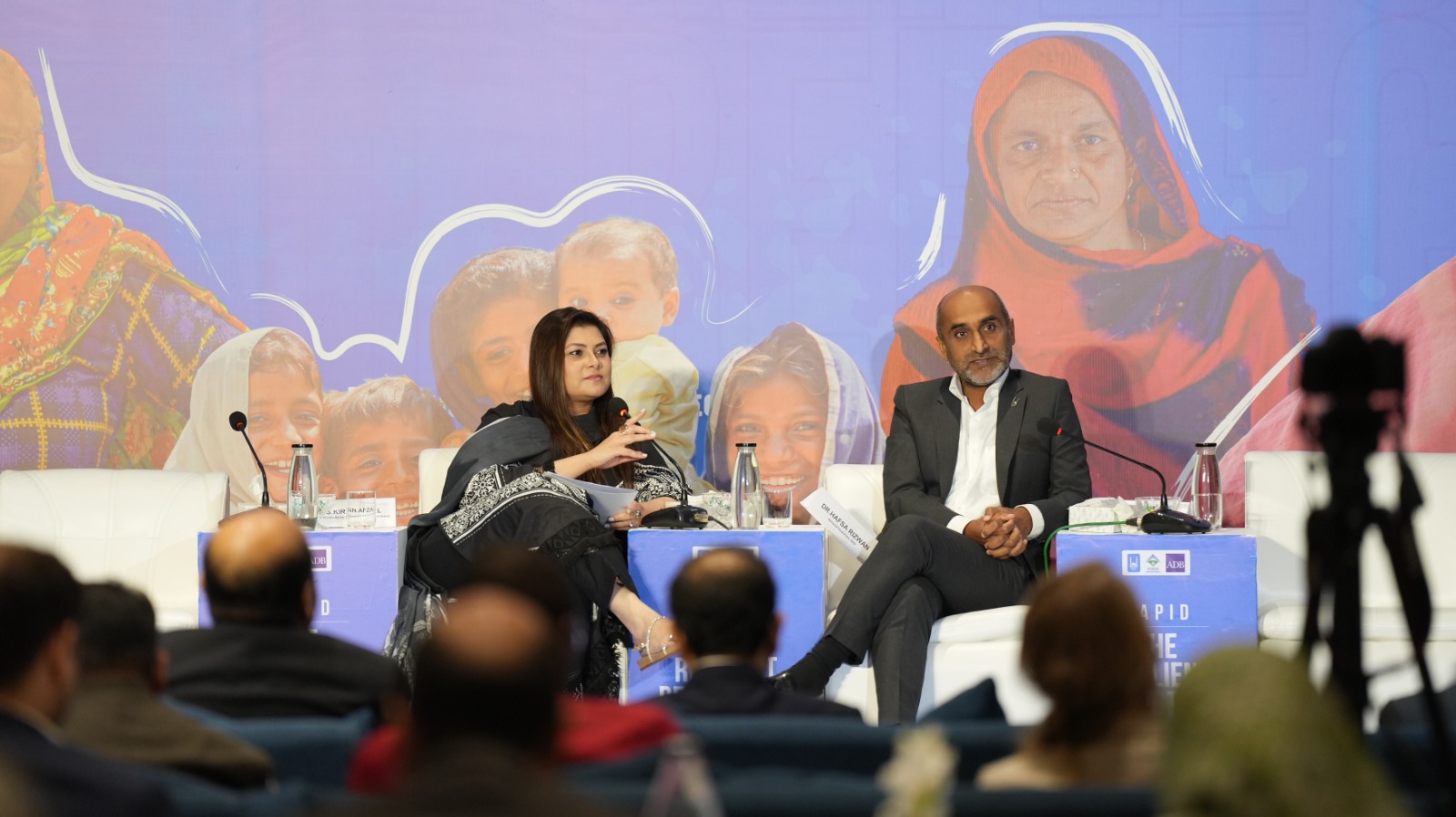
The event featured a panel discussion with representatives from international humanitarian organizations, UN agencies, civil society, and state officials. This diverse group shared their insights and proposed actionable solutions to address pressing challenges in disaster risk reduction and community resilience. Their collaborative approach aimed to promote innovative strategies and enhance the effectiveness of ongoing efforts in combating the impacts of climate change.
Mr. Nathan A. Rive, Climate Change Specialist, Asian Development Bank praised Pakistan for its pioneering climate adaptation policies, particularly acknowledging the establishment of the Ministry of Climate Change. However, he noted a gap in execution. “Pakistan has laid the groundwork with strong policies, but the challenge lies in implementation. We need more bankable projects, where project eligibility is closely aligned with financing opportunities.”
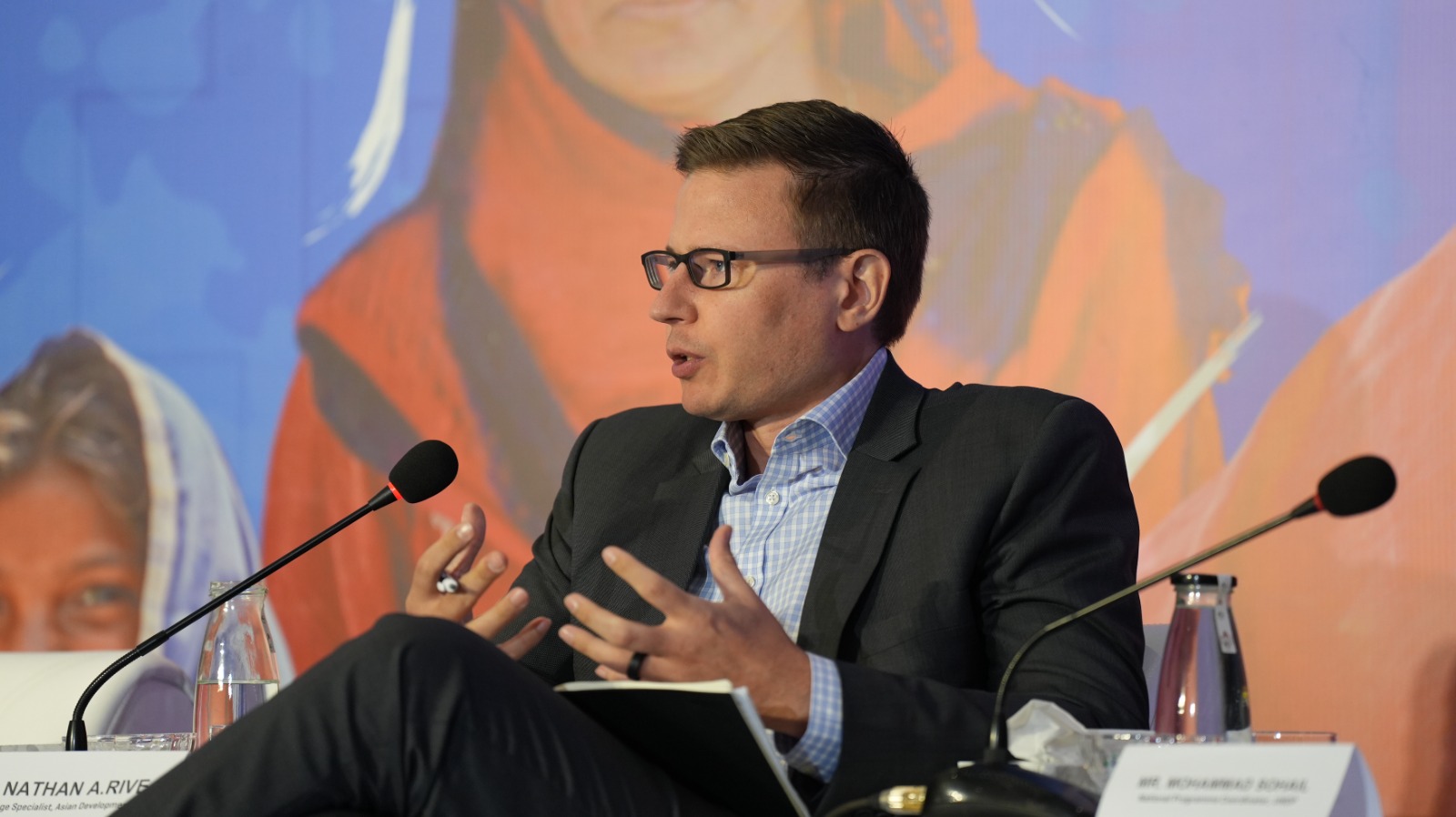
Dr. Aneel Salman – OGDCL- IPRI Chair Economic Security at Islamabad Policy Research Institute-IPRI said that, “Climate change transcends science; it is fundamentally a political, economic, and social challenge. For effective solutions, global collaboration is essential, along with community participation.” He also pointed out the need for “homegrown adaptation strategies” to address the existing mismatch between demand and supply in tackling climate impacts.
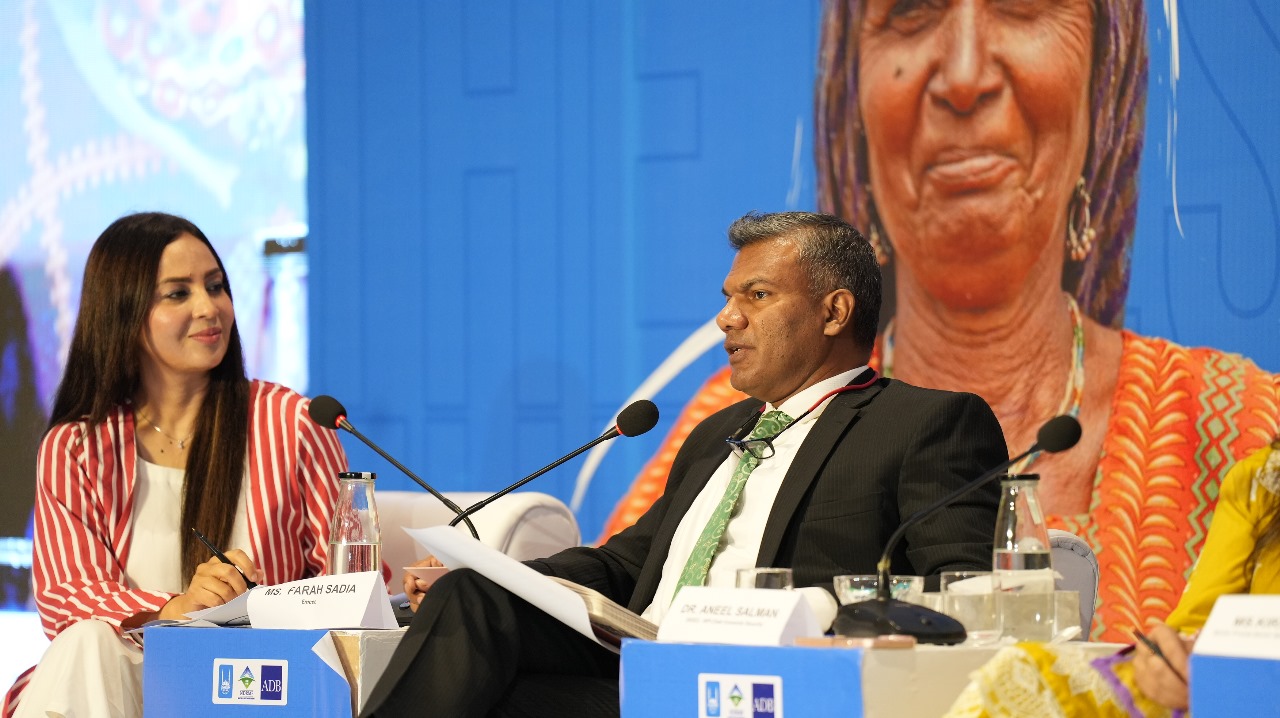
Kiran Afzal – Senior Private Sector Development Specialist, World Bank Group talked about the importance of community ownership in development efforts, “Financing must begin at the grassroots level. As public capacity strains, the private sector has a crucial role in stepping in and mobilizing funds for the public good.”
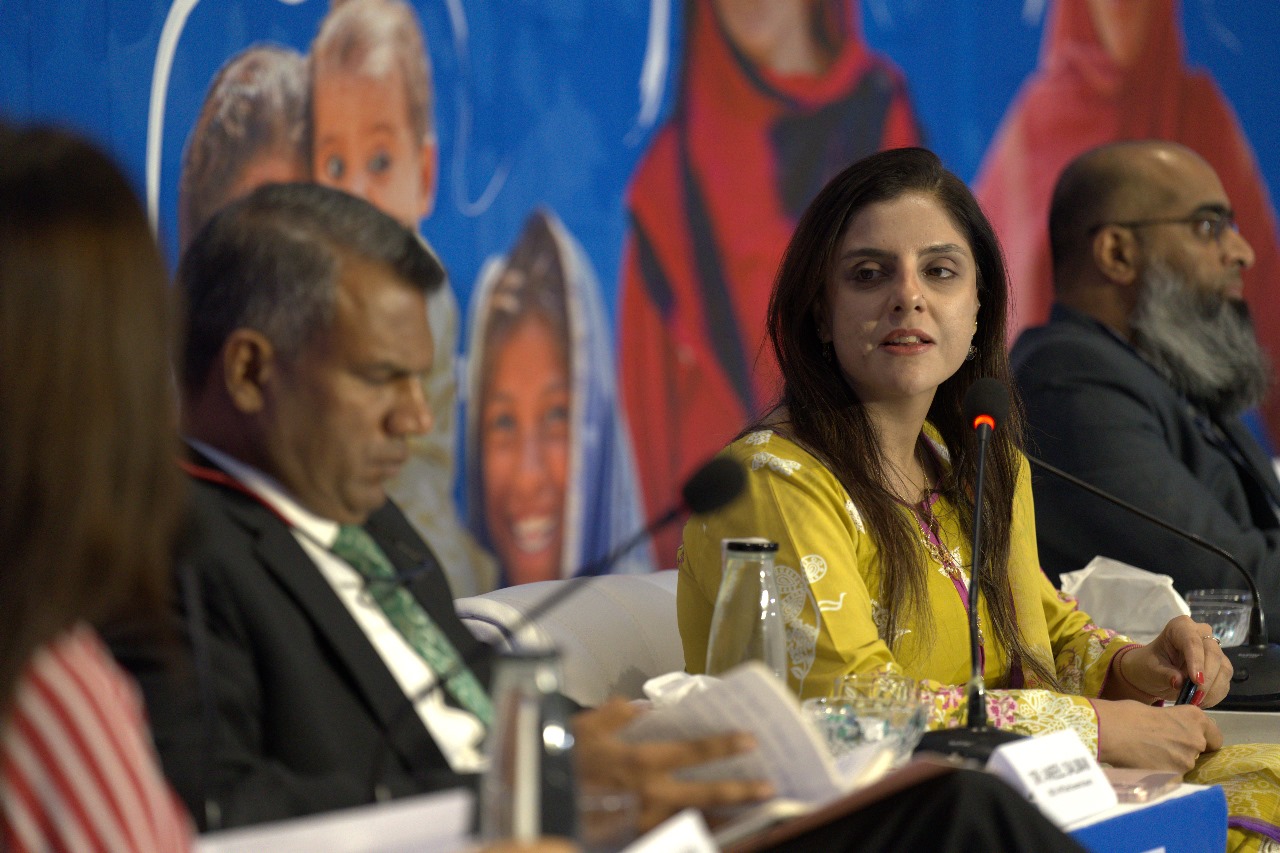
“By providing equipment and training, we can better prepare communities for disasters. Participation and inclusivity are essential to ensure effective disaster management,” said Muhammad Sohail – National Programme Coordinator, UNDP Pakistan on empowering local communities, including local government institutions that are often overlooked. He stressed the need for a bottom-up approach.
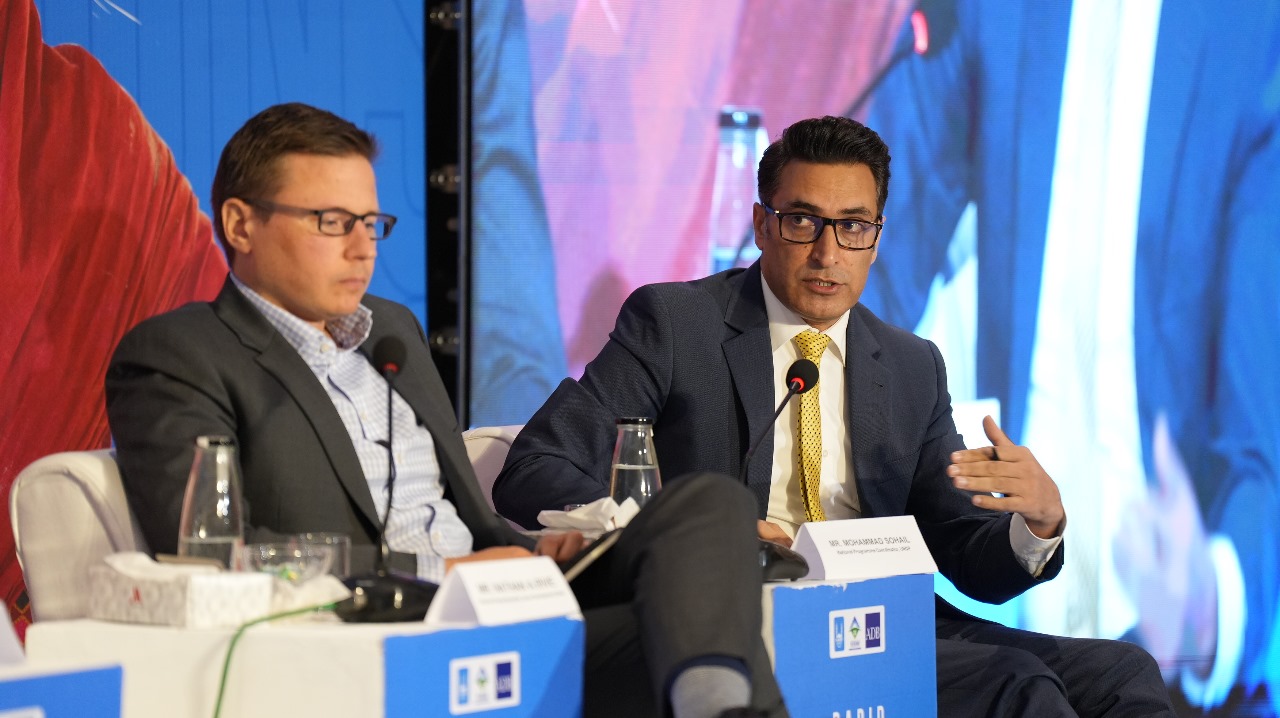
Shabel Firuz – Head of Region Asia, Islamic Relief Worldwide talked about scaling up disaster risk reduction (DRR) efforts within communities. He said, “Islamic Relief is actively developing local DRR plans and common tools to better identify and address community needs.”
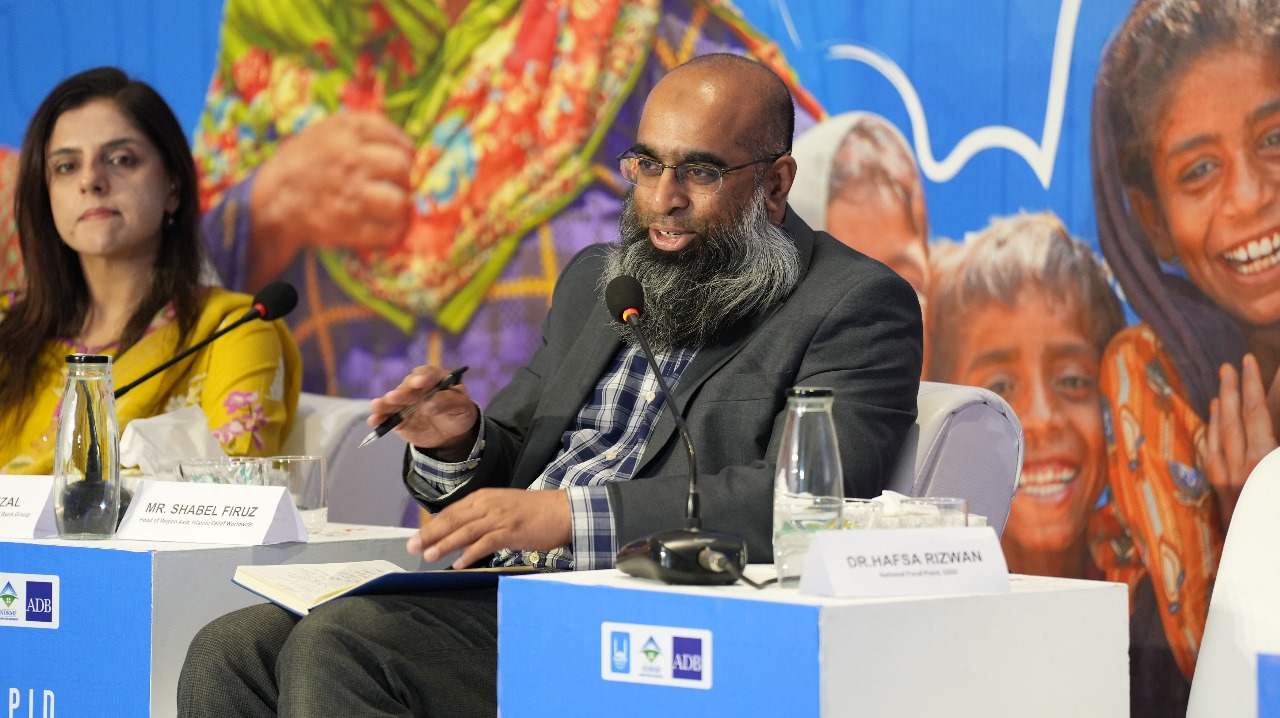
In his concluding remarks, CEO of NDRMF, Mr. Bilal Anwer said, “We must continually learn and challenge ourselves to align with the disaster management agenda.” He mentioned the escalating climate threats faced by the developing countries and stressed the urgent need for significant financing to enhance capacity and scale up responses to climate impacts.
